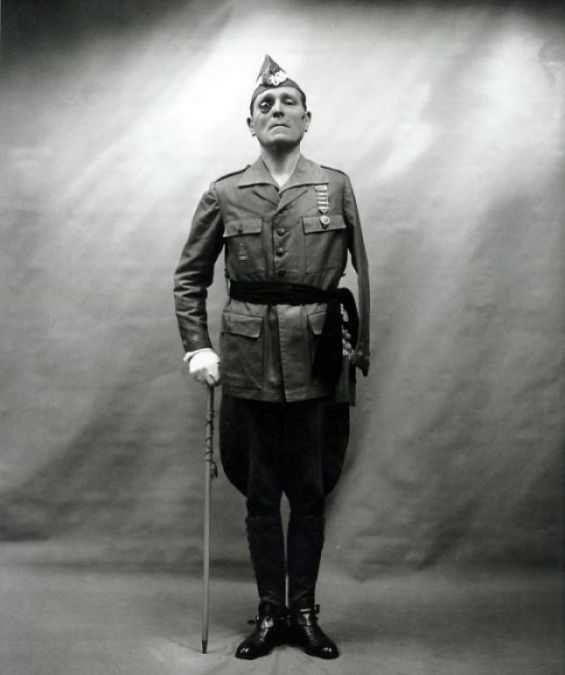On Sunday, September 20, King Felipe of Spain chaired in Almeria the centenary anniversary of the Spanish Legion, which fought in Morocco in the War of the Rif from its founding until 1926. The military body was formed by a royal decree signed by King Alfonso XII on January 1920 and its mission was to defend the Spanish colonies in Africa.
Media coverage of the event and the name of its founder gave the opportunity to the president of Ceuta, Juan Vivas, to ask the municipality of La Coruña to bring back the statue of Millán-Astray, unbolted since January 2010.
The town hall of the capital of the Galicia region had taken this decision, in accordance with the Law on Memory and History adopted by the Spanish Parliament in October 2007, condemning the symbols of Francoism and honoring the victims of the dictatorship.
«Atrocities and massacres in the Rif»
The initiative was hailed at that time by Moroccan politicians in Nador. Thus, in a letter addressed to Javier Losada, socialist mayor of La Coruña, the very controversial parliamentary adviser Yahya Yahya welcomed the removal of the statue, describing it as a «courageous decision» that brought «joy and satisfaction» to the Rif.
The former president of the commune of Beni Nsar had, moreover, blamed the Legion for «the atrocities and massacres in northern Morocco, especially in the Rif».
Nevertheless, the Spanish right-wing which currently holds power in Ceuta rejects all these accusations, whether they are brought by Moroccans or by leftist politicians in Spain. It is determined to rehabilitate all the figures who «served the flag», especially during the Rif War. The spokesman for the enclave's government defended the installation of the statue of Millán-Astray. «It does not constitute a violation of the Law on Memory and History», he told media.
For his part, Juan Vivas pleaded for the «taking down» of the sculpture in an interview, stressing that «between the Legion and Ceuta, there is a definitive and essential link based on a common denominator with an irresistible force : the love for Spain that unites and identifies us».
Beyond these «sentimental arguments», the request expressed by Vivas is mainly based on political considerations. It is part of the declared race of the Popular Party and Vox for the «recovery» of figures of «Spanish nationalism» for electoral purposes.
Juan Vivas' request, although it offends the feelings of Muslims in Ceuta, is reminiscent of the decision taken in June 2012 by the government of Mariano Rajoy (PP). All members of the Chasseurs de Alcantara regiment who had suffered a crushing defeat, 91 years earlier, during the Battle of Anoual (July 21, 1921) against the troops of Mohamed Ben Abdelkrim El Khattabi were decorated.
General José Millán-Astray, in his capacity as leader of the Legion, witnessed this historic military setback. In 1923, he ceded command of this army corps to Franco.




 chargement...
chargement...












